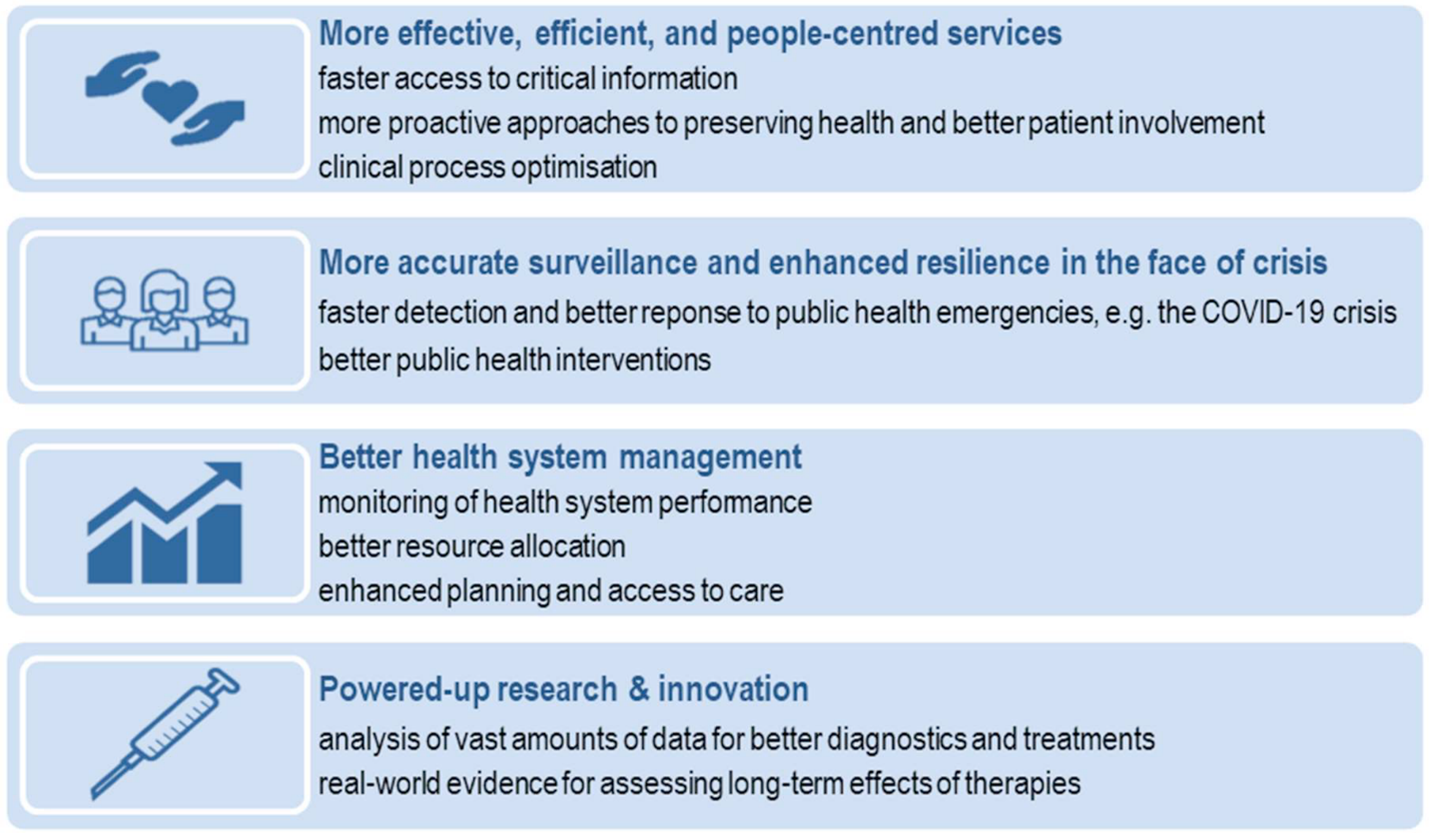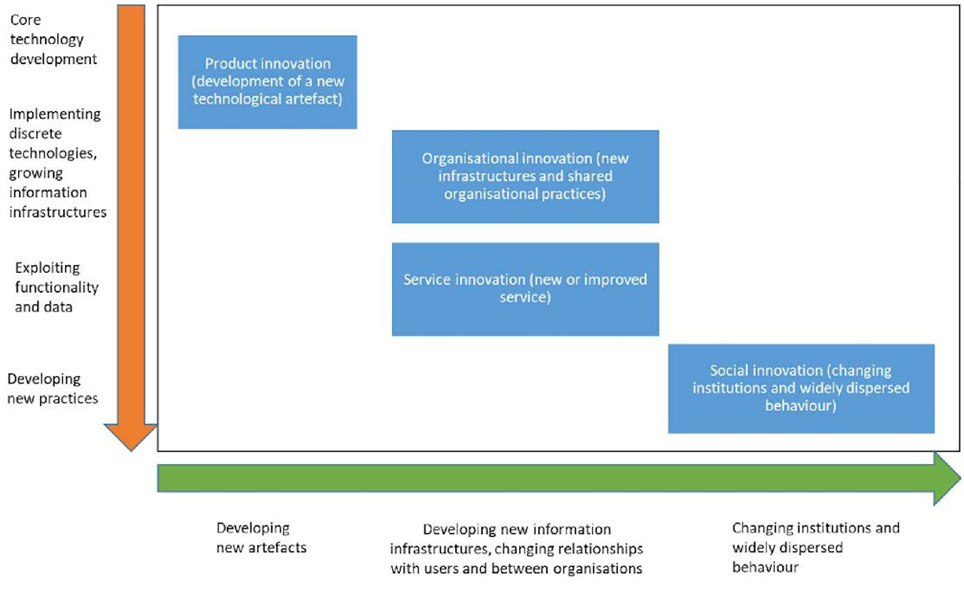Last update: 12 December 2023
Digital transformation is the integration of digital technologies into all parts of a business, radically changing how to operate and offer value to consumers. The digital transformation in the health sector can offer a wide range of benefits, summarised in Figure 1. This transformation needs to incorporate software, hardware, and services.
Unraveling the Benefits of Digital Transformation

Figure 1: The potential benefit of digitally driven innovation in the health sector [1]
Digital Transformation in Healthcare: A Multifaceted Approach
Digital transformation is a complex process that needs a wide range of innovative solutions, including technological (i.e., novel digital solutions), organisational (e.g., service, functions), and social (e.g., cultural/behavioural changes) to enable transformation.

Figure 2: Different forms of required innovations for digital health transformation [2].
Key Challenges in Shaping the Digital Health Future
Healthcare is a complex sector and in order to enter this market, all products and services must prove their safety, benefits, and values before being adopted.
1. Data quality
Health data is the cornerstone of health care systems, and its quality has always been a key concern because of its importance in shaping health policies. Standardisation is a fundamental step in creating high-quality data. The lack of such standards results in discrepancy among the digital platforms, making access and interoperability challenging.
2. Trustworthiness
One of the significant challenges of any transformation, particularly in the health systems, is trust at different levels. Trust and trustworthiness can be made possible via training, informing, or privacy and security assurance. Training and educating the users can increase their knowledge about the value of digital technologies and the users’ trust in using them [3] [4].
3. System interoperability
The pace of creating patients’ health data is increasing every day because of the popularity of digital health devices and mobile applications. However, this data is often collected under different standards, which cannot be merged meaningfully, resulting in fragmented information systems. Additionally, lack of awareness is considered a serious challenge. Some stakeholders (health decision-makers, digital health solution developers, etc.) do not fully understand the importance of interoperability for digital health solutions. Furthermore, there is a paucity of incentives or pressure on healthcare organisations or healthcare providers to adopt interoperability [5].
4. Cybersecurity
Security in the healthcare system is of critical importance. This is particularly so in the phase of digital transition of health systems where privacy and security of sensitive patient information is concerned. As such, threats to cybersecurity are one of the biggest challenges health systems have to face [6].
Learning Resources
Take your skills to new heights by earning certification in emerging fields like Digital Health! Explore the EUPATI Open Classroom and delve into the module Digital Health Transformation and challenges to deepen your understanding of the Digital Health landscape. Strengthen your expertise, empowering you to advocate for, engage in discussions, and play a pivotal role in implementing key elements that align with your vision for the healthcare system.
References
[1] Organisation for Economic Co-operation and Development: OECD Health Working Paper No. 129 Empowering the health workforce to make the most of the digital revolution, 2021. https://www.oecd-ilibrary.org/docserver/37ff0eaa-en.pdf?
[2] Cresswell K, Williams R, Carlile N, Sheikh A. Why digitally-enabled health system transformation needs different forms of innovation. BMJ Health Care Inform. 2020;27:100173. doi:10.1136/bmjhci-2020-100173
[3] Organisation for Economic Co-operation and Development: OECD Health Working Paper No. 129 Empowering the health workforce to make the most of the digital revolution, 2021. https://www.oecd-ilibrary.org/docserver/37ff0eaa-en.pdf?expires=1659692703&id=id&accname=guest&checksum=837633414E08CB8F3481B65238280DE4
[4] World Health Organization. Regional Office for Europe. Future of digital health systems: report on the WHO symposium on the future of digital health systems in the European region: Copenhagen, Denmark, 6–8 February 2019. In: World Health Organization. Regional Office for Europe. https://apps.who.int/iris/handle/10665/329032
[5] Digital Health Europe. What are the barriers to interoperability in healthcare? Accessed June 26, 2022. https://www.i-hd.eu/health-standards/what-are-standards/interoperability-in-2021/obstacles-to-health-data-interoperability/
[6] Directive (EU) 2016/1148 of the European Parliament and of the Council of 6 July 2016 concerning measures for a high common level of security of network and information systems across the Union. https://eur-lex.europa.eu/legal-content/EN/TXT/PDF/?uri=CELEX:32016L1148&from=EN


